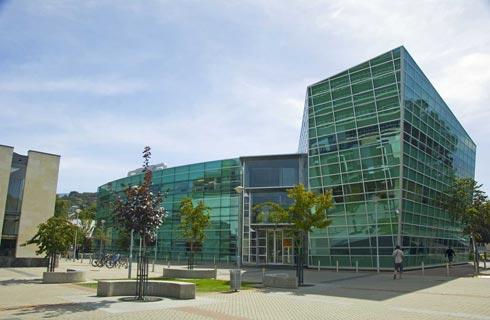Associate in Science - Nutrition and Dietetics (Transfer)

学历文凭
Associate Degree

专业院系
Santa Barbara City College

开学时间

课程时长

课程学费

国际学生入学条件
Graduates of high schools or equivalent are eligible for admission, with the equivalent of a GPA of 2.0 or better.
Students must be 18 years or older by the start of the semester without restrictions.
English Proficiency: TOEFL: PBT 450, CBT 160, IBT 60; iTEP: 3.0; IELTS: 5.5; IGCSE: C; GTEC CBT: 1030; Pearson Test of English: 45; PTE Academic: 44; STEP-Eiken: Grade Pre-1.
Application deadlines: Fall Semester: June 15; Spring Semester: November 1; Summer Session: May 1
IDP—雅思考试联合主办方

雅思考试总分
5.5
- 雅思总分:5.5
- 托福网考总分:60
- 托福笔试总分:450
- 其他语言考试:PTE Academic - 44
CRICOS代码:
申请截止日期: 请与IDP联系 以获取详细信息。
课程简介
相关申请
 预科
预科 奖学金
奖学金 实习机会
实习机会 在校学习
在校学习 跨境学习
跨境学习 校园授课-线上开始
校园授课-线上开始 在线/远程学习
在线/远程学习
开学时间&学费
学费信息仅供参考,请与IDP联系以获取详细信息
| 开学时间 | 时长 | 学费 | 地点 |
|---|
本校相关课程

理学副教授-射线照相
学历文凭
Associate Degree
开学日期
课程费用总额


理学副学士-护理(职业护理)
学历文凭
Associate Degree
开学日期
课程费用总额


理学副学士-护理
学历文凭
Associate Degree
开学日期
课程费用总额


理学副学士-美容学
学历文凭
Associate Degree
开学日期
课程费用总额


Associate in Arts - Administration of Justice (Law Enforcement)
学历文凭
Associate Degree
开学日期
课程费用总额


艺术副学士-戏剧艺术(设计/灯光和/或服装/化妆)
学历文凭
Associate Degree
开学日期
课程费用总额

其他相关课程

牙周病学硕士/牙周学文凭
 达尔豪斯大学
达尔豪斯大学学历文凭
Masters Degree
开学日期
课程费用总额


口腔卫生文凭
 卡莫森学院
卡莫森学院学历文凭
Bachelor Degree
开学日期
课程费用总额


牙科技术文凭
 北阿尔伯塔理工学院
北阿尔伯塔理工学院学历文凭
Bachelor Degree
开学日期
课程费用总额


烹饪艺术文凭
 北阿尔伯塔理工学院
北阿尔伯塔理工学院学历文凭
Bachelor Degree
开学日期
课程费用总额


牙科协助证书(I级和II级)
 尼亚加拉学院
尼亚加拉学院学历文凭
Bachelor Degree
开学日期
课程费用总额


烹饪技能证书
 尼亚加拉学院
尼亚加拉学院学历文凭
Bachelor Degree
开学日期
课程费用总额










 美国
美国
